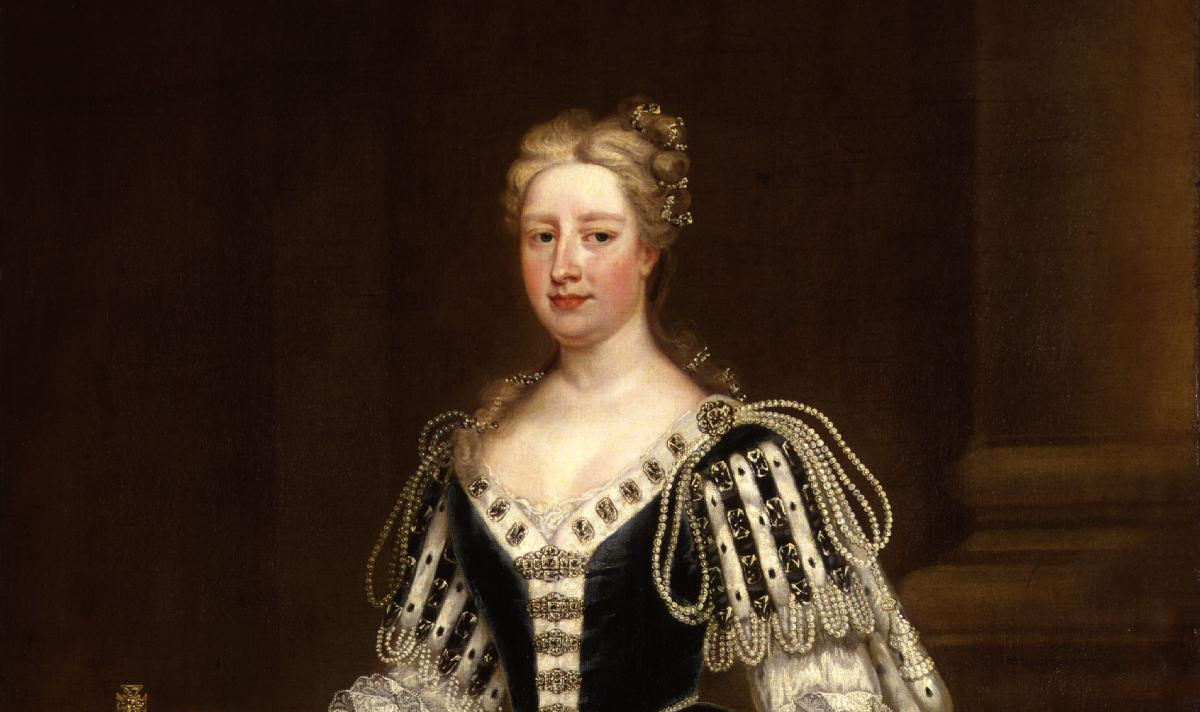History is full of amusing stories, including many an unusual death. With medicine rarely advanced enough to treat any ailments that could end one’s life, it has certainly given us some interesting tales to recount. Let us start with Queen Caroline’s bursting gut, which killed her in 1737.

Queen Caroline was the consort of George II, who reigned from 1727-1760, more than half of it without his wife. She has been described as the cleverest Queen to sit on the throne by Lucy Worsley and was renowned for her intelligence and strong character, attracting scholars to the British court. She was trusted by her husband, who appointed her regent whenever he left the country, as opposed to their rebellious son, Frederick, Prince of Wales (whose son would take the throne as George III).
Likely due to an expanding waistline, Caroline suffered with gout in her feet, meaning she sometimes struggled with movement. Worse for the Queen, she suffered an umbilical hernia following the birth of Princess Louise, future Queen of Denmark and Norway, who was her final child. She had certainly fulfilled her role (ten pregnancies, eight births), which likely weakened her stomach wall causing the hernia.
Embarrassed by her hernia, the Queen would never fully undress in front of her ladies, and hated tight clothing around her middle.
The hernia came to cause significant problems on 9th November 1737. Caroline felt an intense pain in her abdomen during a reception. She struggled on with the pain to complete her duty for the evening, then took to bed feeling rather ill.

With the country’s best doctors at her service, the Queen was examined and treated with the medical profession’s various suggestions. Caroline’s doctors bled her, purged her, and eventually operated on her – without anaesthetic. Her pioneering role in influencing public health would do nothing to save her from dying at the doctor’s hand…
When they opened her up, they found part of her bowel, decaying, poking through the muscle wall of her stomach. Despite The Royal Society’s recent guidelines to cure such ruptures ‘without cutting’, instead of pushing it back inside and sewing her up, the surgeons cut off the part of the bowel. Operations continued daily for a while.
Unsurprisingly, there was no improvement in her condition, but despite the lack of drugs like opium for the surgery, she was still in good cheer. ‘Before you begin let me have a full view of your comical face’, she would say to Dr Ranby. As he worked, the Queen would ask: ‘what would you give now that you was cutting your wife’?, joking about his divorce. She even had to have the surgeon and his companion – an elderly former surgeon – to stop for a while so that she might laugh after one of their wigs was set on fire by the candle light.
It was the cutting of the bowel which destroyed Caroline’s digestive system, taking with it the hope of a recovery. Despite the tonics she was offered – including brandy, mint water and ‘Sir Walter Raleigh’s Cordial’ – the Queen could not keep anything down because of the turmoil her body was in.
George II refused The Prince of Wales permission to see his mother, which Caroline agreed to, such was the state of their relationship.
On 17th November, two weeks after her original complaint, the Queen’s strangulated bowel burst, leaving her to languish for three days before death. Caroline passed away in the evening of 20th November at St. James’s Palace, after she had said goodbye to her children, and had the light put out. Her husband’s hand was in hers.

She was buried in Westminster Abbey on 17th December, and George II had Handel compose a piece. The ways of Zion do mourn was created for the Queen’s funeral, which the King couldn’t bring himself to attend, appointing Princess Amelia as chief mourner; instead he went to the service at St James’s Palace. It is thought that this was the first royal funeral where special seats were built inside the church for nobility to see the procession.
George arranged for him and his wife to have matching coffins with removable sides, so that when he too passed away, they could lie together again.








